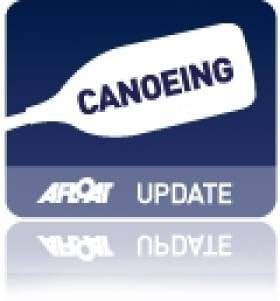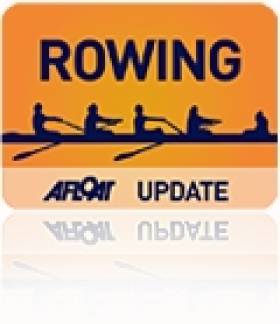Displaying items by tag: Hungary
Jenny Egan Fourth at Canoe Marathon World Championships
#Canoeing: Jenny Egan finished fourth in the senior K1 event at the Canoe Marathon World Championships in Gyor in Hungary. Anna Koziskova of the Czech Republic took gold, covering the 26.1 kilometre course in one hour 56 minutes 28.847 seconds, while Egan was three minutes and just under 50 seconds further back. Egan was 57 seconds behind bronze medallist Kristina Bedec of Serbia.
Canoe Marathon World Championships, Gyor, Hungary
Men
K1 Senior, 30km: 25 P Egan 2 hrs 15 min 24.477sec ; B Watkins dnf. K1 Under-23, 26.1km: 18 T Brennan 1:56.378.177
Women
K1 Senior, 26.1km: 4 J Egan 2:00.18.166.
Egan Sets Sights on Olympic Canoeing Spot
#CANOEING - The Evening Herald reports that top Irish canoeist Jenny Egan is headed to Florida for a few months of training towards a spot at the 2012 Olympics.
A sprint and marathon racer, Egan was named as The Irish Times/Irish Sport Council's Sportswoman of the Month for May 2010 in recognition of some very impressive performances.
Indeed, the Kildare native enjoyed much success in 2012, with second place in the 5000m at the World Sprint Cup in the Czech Republic and a new Irish record in the 500m at the Canoe Slalom Worlds in Hungary among her achievements.
Heading into 2012, the Salmon Leap club member will surely be shrugging off setbacks like her crash in the heat and humidity of Singapore at the Canoe Marathon Worlds last October.
The new year brings a new focus, as Egan will concentrate on the 500m and 200m K1 sprint distances for the London games, with the final qualifiers - for just 15 spots - taking place in Poland in April.
The Evening Herald has more on the story HERE.
Ireland Take Bronze in World University Rowing
Ireland's senior eight took bronze at the World University Rowing Championships at Szeged in Hungary today. Britain were well in control through the race, but Ireland were always in medal contention and pushed France into fourth. Estonia took the silver. The Ireland crew is built around the outstanding Queen's University eight, with Dave Neale and Finbar Manning of UCD in the bow and fifth seat respectively. Results are below and also attached for download as a pdf.
Click this link for Irish Rowing details
Click this link for the Latest Rowing News






























































